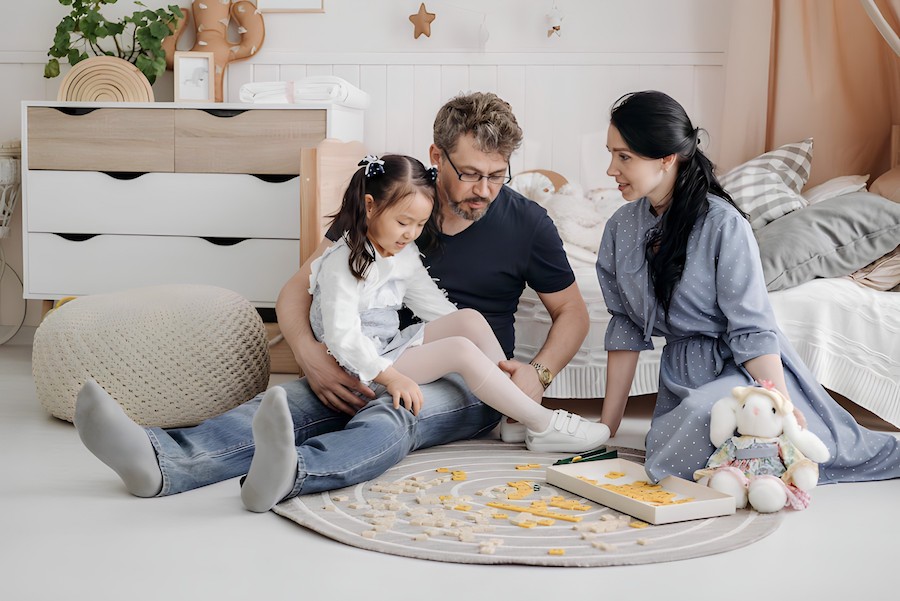Parents understand that there are moments when words slip out of their mouths in front of their kids, often without realizing the impact those words can have. Children have a knack for absorbing everything around them, and our words can come back to haunt us in unexpected ways. To help you navigate these situations, we’ve compiled a comprehensive list of 10 things 2023 parenting communication tips should avoid saying in front of their kids. By following these guidelines, you can ensure mindful communication and cultivate a positive environment for your children’s development.
Swear Words
It’s crucial to steer clear of using profanity or offensive language in front of your children. Cuss words may seem harmless in the heat of the moment, but kids are quick to pick up on habits. To prevent your child from adopting foul-mouthed behavior, it’s best to avoid offensive language altogether. Setting a positive example through your own words will help your child develop better communication skills and foster a respectful environment. Consider implementing a “curse word jar” in your home, where family members contribute money when they slip up, further reinforcing the importance of avoiding such language.
Demeaning the Other Parent
Belittling your spouse or partner in front of your children is a harmful practice that should be avoided at all costs. Disparaging remarks undermine the stability and trust within the family unit. Instead, focus on resolving conflicts and addressing concerns through open and respectful communication. By demonstrating healthy ways of dealing with disagreements, you teach your children valuable lessons about conflict resolution and cooperation.
Arguments Between Spouses
Strive to create a safe and harmonious environment for your children by avoiding heated arguments in their presence. Witnessing intense arguments, regardless of their significance, can instill fear and anxiety in children. It’s important to address conflicts privately, allowing children to witness healthy discussions and effective problem-solving. By modeling positive behavior during disagreements, you equip your children with valuable skills for navigating conflicts in their own lives.

Negative Body Talk
In a society rife with body image issues, it’s essential to refrain from making negative comments about your own body or using derogatory language. Children are highly impressionable, and hearing their parents criticize their appearance can have a detrimental impact on their self-esteem and body image. Promote a healthy body image by emphasizing self-acceptance, embracing diversity, and highlighting the importance of inner qualities over outward appearance. Encourage your children to love and appreciate their bodies as they are.
Unfavorable Comparisons
Avoid making unfavorable comparisons between your children and others, be it siblings, cousins, or friends. Comparisons imply inadequacy and can lead to resentment, jealousy, and self-doubt. Instead, celebrate each child’s unique qualities and achievements, emphasizing that everyone has their strengths and areas for growth. Encourage your children to focus on their own progress and personal development, fostering a sense of self-worth and confidence.
Gossip About Other Parents/Children
Engaging in gossip or negative conversations about other parents or children is not only harmful but also sets a poor example for your own children. Speaking negatively about others perpetuates a culture of negativity and judgment. Model empathy, respect, and kindness in your words and actions. Encourage your child to focus on their own growth and development, promoting inclusivity and understanding.
“Shut Up”
Use respectful language and avoid dismissive phrases like “shut up.” Such phrases undermine the value of someone’s thoughts, opinions, and emotions. Encourage open dialogue, active listening, and the validation of each other’s feelings within your family. By creating a safe space for communication, you foster an environment of mutual respect and cooperation.
Discussing Surprise Gifts
While not as significant as other points on this list, discussing surprise gifts in front of your child can unintentionally spoil the surprise for the recipient. Children may inadvertently reveal details, compromising the joy and excitement. Maintain the element of surprise by keeping such information confidential until the appropriate moment.

Related Blog: The Best Online Parenting Magazines For Modern Parents
Imposing Gender Stereotypes
Avoid limiting your child’s interests or activities based on gender stereotypes. Allow them to explore their passions and hobbies freely, without feeling constrained by societal expectations. Encourage your child to pursue their interests, regardless of whether they align with traditional gender roles. By embracing their individuality and supporting their choices, you foster a sense of self-worth and empower them to be true to themselves.
Dismissing Tears
When your child is upset and crying, respond with empathy and understanding. Dismissing their tears diminishes the significance of their emotions and can make them feel unheard or invalidated. Instead, provide comfort, ask about their feelings, and offer reassurance that you are there to support them. Teach your child healthy coping mechanisms, such as deep breathing or engaging in activities that bring them joy.
By following these guidelines for mindful communication, you can foster an environment of respect, empathy, and open dialogue within your family. Being mindful of the words you choose and the impact they can have on your children’s emotional well-being is an essential aspect of responsible parenting. Let’s strive to create an environment where our children feel heard, valued, and loved, laying the foundation for their healthy emotional development.

